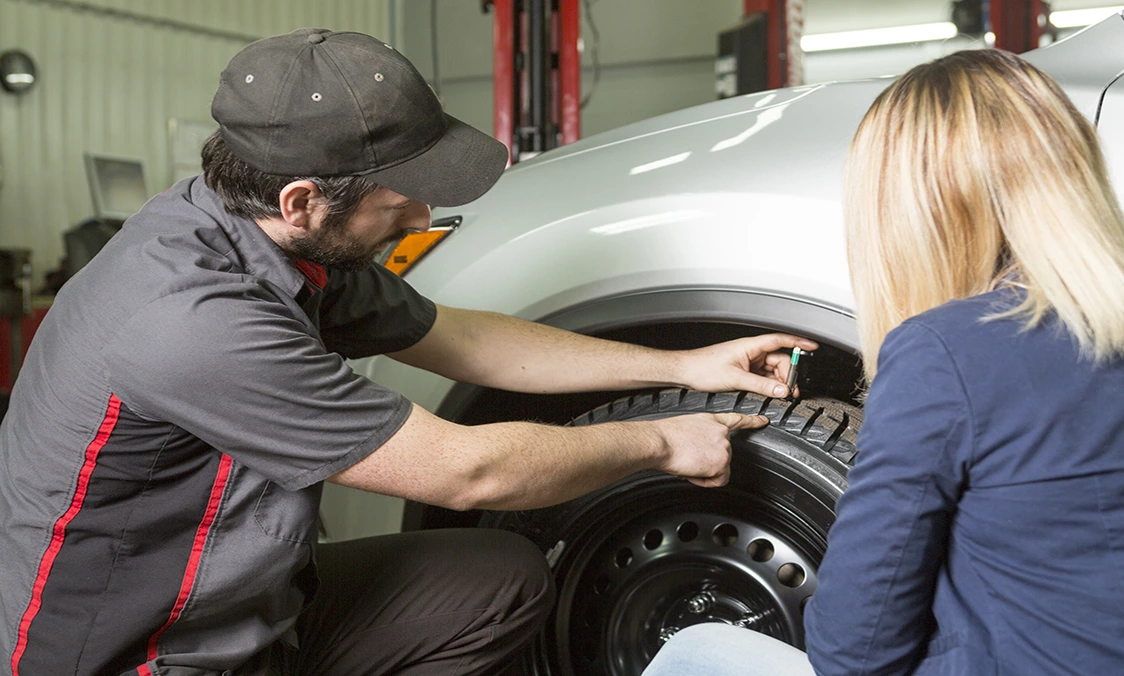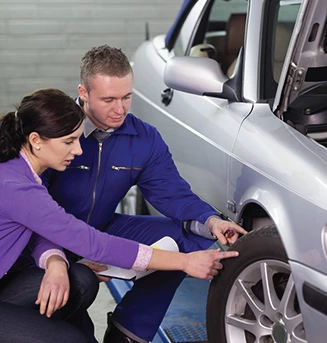Using Proper Fluids in Your vehicle
August 13, 2023
Today, TLC Custom Exhaust Brakes & Tires is writing about the proper fluids for your vehicle. It's become more complicated with changes in automotive design and manufacturing. It's not that people in Royal Oak are confused as much as they don't realize how much things have changed in recent years.
If you have questions about the fluids in your vehicle, please don't hesitate to stop by TLC Custom Exhaust Brakes & Tires. You can find us on 1735 N Main St in Royal Oak, Michigan 48067.
Just give us a call at 248-541-8300.
Let's take engine oil. Twenty or 30 years ago, there were just a handful of different weights of oil. The weight of an oil is a scientific measure of its properties, particularly its viscosity or thickness.
It was common in those days to use a lighter weight oil in the winter when it's cold outside. That way the oil would be able to splash around inside the engine and protect the parts before it was fully warmed up. And a heavier weight oil would be used in the summer. The thicker oil wouldn't thin out too much in the summer heat and vaporize in the engine.
Modern valve trains have become very complicated with more moving parts and small passages than ever before. The valve train is in the top of the engine, so when the vehicle has been turned off for a while, the oil tends to run down to lower areas. That means the valve train parts are vulnerable at start-up, before the oil starts circulating.
So new weights of oil have been introduced to meet the engineering specifications of these newer engines.
Manufacturers are recommending specific weights of oil. The recommendation is often printed on the oil fill cap. It's certainly in the owner's manual. Of course, TLC Custom Exhaust Brakes & Tires in Royal Oak can look it up for you.
It's more important than ever to have the correct weight of oil. The wrong weight could actually harm the engine.
Other fluids are also becoming more sophisticated. In the last few years new types of transmission, power brake fluid and coolant have all been introduced for some of the same reasons as for engine oil.
In addition, vehicle manufacturers are now using a wider variety of materials in these systems. Looking at the cooling system as an example, it used to be that the parts were all made out of steel or iron and the hoses were rubber. Now, some parts are plastic, aluminum or other materials.
So the anti-corrosion additives contained in the coolant, or anti-freeze, need to be different in order to protect the different materials used to make the cooling system. If you use the wrong coolant that wasn't formulated to protect your plastic cooling system parts, they could become corroded and fail. And if you're using the wrong coolant, your cooling system won't be covered under warranty. So it's important to use the right coolant and to not mix different types.
Your owner's manual or service advisor at TLC Custom Exhaust Brakes & Tires can make sure you're using the right type. You may have heard of universal coolant. Universal, or global, coolant can be added to other types without harmful reactions. That's OK for an emergency top off, but following your manufacturer's recommendation for your vehicle or other auto type is always a safe bet.
In the area of brake fluid, there are a couple of new formulations. It's important to remember that the new ones aren't better than the old ones. They're just different formulations for different vehicles. So if your vehicle calls for DOT 3, using DOT 4 or DOT 5 is not an upgrade. Use the recommended formula.
There are fluid formulations for vehicles with higher mileage. These are special engine oil, transmission fluid and so on that contain additives to condition and restore seals and gaskets in older engines.
They're fine to use as long as they're a variant of the proper fluid. In other words you can use a high mileage engine oil as long as it's also the correct weight recommended by the manufacturer. Same goes for transmission fluid; as long as it's the right type for your transmission.
TLC Custom Exhaust Brakes & Tires
1735 N Main St
Royal Oak, Michigan 48067
248-541-8300
http://www.tlcautocareroyaloak.com
Need Service?
More articles from TLC Auto Care

A Bright Spark (Ignition Coil Replacement)
May 11, 2025
Ever wonder how your vehicles engine is able to take the 12-volts from its battery and ramp that up to as high as the tens of thousands of volts it takes to fire its spark plugs? The secret is something called an ignition coil. Most newer vehicles have an ignition coil at each cylinder, but olde... More

The Engine Gets a Boost (Turbocharged Engine Maintenance)
May 4, 2025
If someone told you that your vehicle could have the same power but with a smaller engine, wouldn't that sound like great idea? Just think, a smaller engine would save you money at the gas station and you'd still get the same horsepower. The technology to do just that has been around for a long t... More

The Byte Stuff (Your Vehicle's Computers)
April 27, 2025
Nobody has to tell you that computers are a part of so many things in our lives. Smartphones, kitchen appliances, vacuum cleaners, televisions. You name itit has a computer in it. And your vehicle is no exception. The earliest cars relied on the technology of their time, and there was no such ... More










